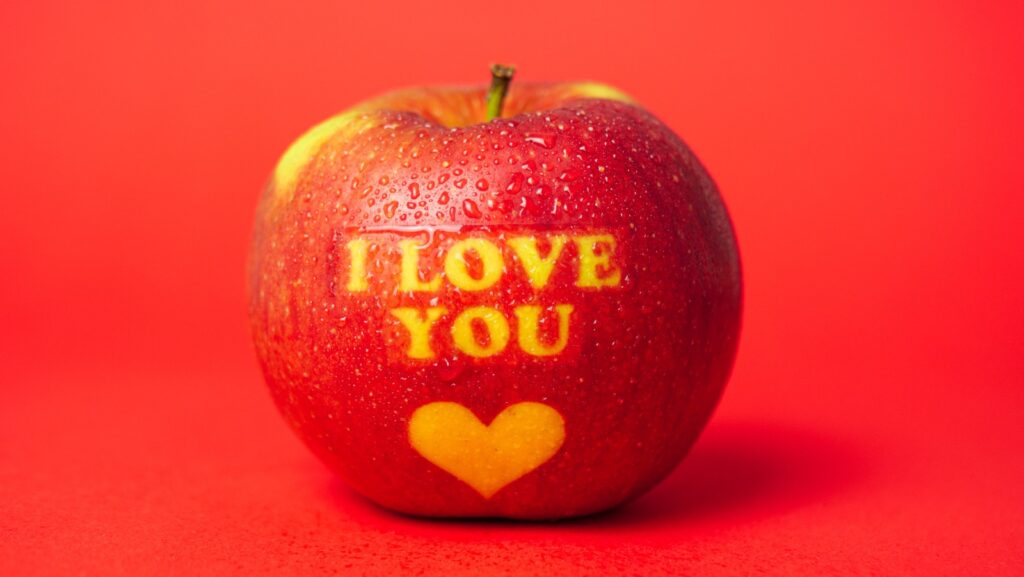“I love you” encompasses a depth of emotion and meaning that few phrases can match. It carries the power to uplift, heal, and strengthen bonds between individuals. When someone says these three words, it’s an affirmation of affection, care, and a deep connection that binds hearts together.
Universal Language:
Love serves as a universal language, a bridge that transcends the boundaries of culture, language, and geography. Regardless of where you are in the world or what language you speak, the sentiment behind “I love you” remains consistent. It’s a sentiment understood by people of all backgrounds, reinforcing our shared humanity.
Connecting Humanity:
At its core, love is what connects us as human beings. It’s a unifying force that reminds us of our shared experiences and emotions. Love isn’t confined to a single group or community; it’s a thread that weaves through the tapestry of humanity itself. “I love you” is a declaration of this interconnectedness, a reminder that we are all capable of compassion and empathy.
Expressing Love:
“I love you” isn’t merely a phrase; it’s an expression of one of the most profound emotions we can experience. It’s a way to communicate our feelings, to let others know that they matter deeply to us. In times of joy, “I love you” multiplies the happiness. In moments of sorrow, it offers solace and support.
Healing and Forgiveness:
Love has the remarkable ability to heal wounds and repair broken relationships. When offered genuinely and sincerely, “I love you” can mend fences, restore trust, and bring about reconciliation. It has the power to dissolve grudges and replace them with understanding and forgiveness.
Acts of Love:
While spoken words are meaningful, love is also demonstrated through actions. “I love you” is often accompanied by acts of kindness, support, and sacrifice. It’s the small daily gestures and selfless deeds that truly reinforce the love we profess.
Infinite Variations:
“I love you” takes countless forms. It’s whispered between lovers, shared between friends, exchanged between parents and children, and even extended to beloved pets. Love is adaptable and versatile, capable of flourishing in various relationships and settings.
Timeless and Eternal:
The phrase “I love you” has been uttered throughout history, across generations. Its enduring relevance highlights its timeless nature. Love has been celebrated in ancient myths, depicted in classical art, and chronicled in literature, all echoing the enduring power of affection.
“I love you” is not just a trio of words but a profound expression of one of the most potent human emotions. It unites us, defines our relationships, and reminds us of the immense capacity for love that resides within each of us. It’s a reminder that love is both universal and deeply personal, a force that enriches our lives in countless ways.

The Impact of “I Love You”
Emotional Connection:
Saying “I love you” is akin to opening a window to the heart. It’s a profound declaration that transcends mere words, allowing individuals to forge a deep emotional connection. When we hear or say “I love you,” it’s as if we’re handing someone a piece of our soul. These words hold the power to reassure, comfort, and uplift our spirits. They convey the message that we are cherished, accepted, and deeply valued.
Strengthens Relationships:
In romantic relationships, “I love you” is a potent force. It’s a declaration of commitment, devotion, and unwavering affection. These three simple words possess the ability to solidify and strengthen the bonds between partners. They serve as a constant reminder of the profound connection that exists. When spoken sincerely, “I love you” can act as a steadfast anchor during storms, ensuring that love remains the foundation upon which the relationship thrives.
Family Love:
Within families, “I love you” serves as the glue that binds generations together. It’s a phrase that fosters a profound sense of belonging, support, and security. Parents frequently express their love for their children through these words, and children, in turn, reciprocate. It’s a cycle of affection that extends from grandparents to grandchildren, creating a nurturing and loving environment in which individuals can flourish.
Friendship:
While “I love you” is often associated with romantic love, it is by no means limited to such relationships. Friends frequently exchange these words to express their deep affection and loyalty. The bond between friends is fortified when they share their love openly. It’s a reminder that friendships are built on trust, mutual respect, and genuine care. In times of joy and hardship, “I love you” reinforces the support and camaraderie that friends provide.
Acts of Kindness:
“I love you” isn’t confined to spoken language; it extends into our actions. Love is, fundamentally, a verb—a series of acts and gestures that demonstrate our affection and care for others. When we accompany these words with deeds of kindness, the impact is magnified. Whether it’s preparing a favorite meal, offering a comforting embrace, or lending a helping hand, these acts of love reinforce the sincerity behind “I love you.” They transform love from an abstract concept into a tangible and heartfelt experience.
Ways to Say “I Love You”
It can be expressed in various ways, each with its unique charm and significance. Verbal expression is immediate and heartfelt, written messages are enduring and cherished, gifts are tangible tokens of affection, quality time signifies prioritization of relationships, and acts of service demonstrate thoughtfulness and support. The choice of how to say “I love you” depends on the individual and the relationship, but each method has the same underlying message: a profound declaration of love and care
Verbal Expression:
The most direct and immediate way to convey your love is through verbal expression. Those three words, “I love you,” are a powerful testament to your affection and care. When spoken sincerely and from the heart, they hold the capacity to brighten someone’s day, offer solace in times of distress, and reinforce the bonds of love. The key here is sincerity; saying “I love you” with genuine emotion behind it can have a profound impact on the recipient.
Written Messages:
Putting your feelings into written words is a timeless and enduring way to say “I love you.” Love letters, heartfelt emails, or even a simple text message can transcend physical distance and capture the essence of your emotions. Written messages allow you to express your thoughts and feelings with clarity and eloquence. They become cherished keepsakes that can be revisited whenever the need arises, serving as a reminder of your love.
Gifts:
Thoughtful gifts are a tangible expression of your love and consideration. While they need not be extravagant, they should be chosen with care. Whether it’s a bouquet of flowers, a handmade card filled with personal sentiments, or a special present chosen specifically for the recipient, gifts have the power to convey your love in a tangible form. They serve as tokens of appreciation and affection that can brighten someone’s day and serve as lasting mementos of your love.
Quality Time:
Spending quality time with loved ones is an action that speaks volumes. It demonstrates that you value their presence and prioritize your relationship. Whether it’s sharing a leisurely meal together, embarking on an adventure, or simply having a heart-to-heart conversation, dedicating your time to someone is a powerful way to say “I love you.” It fosters a sense of connection and togetherness that strengthens bonds.
Acts of Service:
Actions often speak louder than words, and performing acts of service is a practical way to demonstrate your love. These acts can be as simple as helping with household chores, running errands, or offering assistance in times of need. When you take the initiative to make someone’s life easier or more enjoyable, you’re conveying your love through your actions. Acts of service showcase your thoughtfulness and willingness to support those you care about.
Cultural Perspectives on Love
Love is a universal emotion, but the ways in which it is expressed and understood vary significantly across cultures. These variations can be influenced by historical, religious, and social factors, shaping unique cultural perspectives on love.
1. Western Cultures:
In Western cultures, particularly in Europe and North America, romantic love is highly celebrated. The emphasis is often on passionate, romantic relationships characterized by gestures of affection, gift-giving, and the exchange of love letters. Valentine’s Day, for example, is a widely recognized holiday for celebrating romantic love.
2. Asian Cultures:
In many Asian cultures, love is often viewed in a more reserved and family-oriented manner. Filial piety, or the respect and care for one’s parents, is a central concept in cultures like Confucianism. Love and affection are expressed through commitment and respect for partner along with elders and fulfilling familial duties. However, modernization and globalization have led to a greater influence of Western-style romantic love in some Asian societies.
3. Middle Eastern Cultures:
In Middle Eastern cultures, love is often intertwined with religious and family values. Arranged marriages are still common, where love is expected to develop over time. The concept of “Ishq” in Arabic culture represents deep, passionate love, often associated with poetic and romantic expressions.
4. African Cultures:
Africa is incredibly diverse, with various cultures and traditions. In some African societies, love is expressed through rituals, dances, and music. Marriages are often seen as the union of two families, and love is considered an essential aspect of community and connection.
5. Latin American Cultures:
Latin American cultures are known for their passionate and expressive approach to love. Family and community play significant roles, and love is often demonstrated through physical affection, lively celebrations, and festivals. “Dia del Amor y la Amistad” (Day of Love and Friendship) is celebrated in many Latin American countries as an occasion to express affection for friends and loved ones.
Significance of Love-Related Customs and Traditions:
Love-related customs and traditions are deeply rooted in cultural history and have various purposes:
- Preservation of Culture: These customs help preserve cultural values and norms related to love and relationships.
- Social Cohesion: Love-related customs often serve to strengthen bonds within communities, families, and couples.
- Transition into Adulthood: Many cultures have rites of passage related to love, such as marriage ceremonies or rituals that signify adulthood.
- Expression of Identity: Love-related customs and traditions can be an essential part of one’s cultural identity, influencing how individuals perceive and experience love.
Cultural perspectives on love are rich and diverse, shaped by the unique histories and values of each culture. Exploring these perspectives not only broadens our understanding of love but also highlights the profound impact of culture on the ways we express and experience this universal emotion.
The Science of Love
“The Science of Love” delves into the intricate workings of human emotions and relationships from a scientific perspective. It explores the psychological and physiological aspects of love, shedding light on what happens in our brains and bodies when we experience this powerful emotion.
1. Brain Chemistry: Love has a profound impact on brain chemistry. When individuals are in love, their brains release a cocktail of neurochemicals, including dopamine, oxytocin, and serotonin. Dopamine is often associated with pleasure and reward and plays a significant role in the feelings of euphoria and desire that accompany romantic love. Oxytocin, sometimes referred to as the “love hormone” or “cuddle hormone,” is linked to bonding, trust, and social attachment. It’s released in higher quantities during physical intimacy and childbirth. Serotonin, another neurotransmitter, can influence mood and appetite and plays a role in regulating emotional well-being.
2. The Role of Oxytocin: Oxytocin is a key player in love and bonding. It’s released during hugging, kissing, and sexual activity, as well as during childbirth and breastfeeding. Oxytocin promotes feelings of trust, empathy, and attachment, fostering emotional connections between individuals. It’s not limited to romantic love but also plays a vital role in the bonds between parents and children and among friends.
3. Dopamine and Reward: Dopamine is associated with feelings of pleasure and reward. When people are in love, dopamine levels rise, leading to sensations of happiness and excitement. This surge in dopamine is responsible for the “high” that people often describe when they’re in the early stages of a romantic relationship. It reinforces the desire to be with the person one loves.
4. Love and the Brain: Neuroimaging studies have shown that different areas of the brain are activated when individuals are in love. The brain regions associated with reward, motivation, and pleasure light up, while areas responsible for critical judgment and negative emotions may become less active. This can lead to a rosy, idealized view of the beloved.
5. The Evolutionary Perspective: Love and attachment have evolutionary roots. In the context of human evolution, forming strong emotional bonds and attachments was advantageous for survival. It ensured that caregivers would protect and nurture offspring, contributing to their chances of survival. This evolutionary perspective helps explain why love is such a fundamental and powerful human emotion.
Understanding the science of love provides insights into the profound impact it has on our lives, from our romantic relationships to our bonds with family and friends. It highlights the complex interplay between biology, psychology, and emotions, reminding us that love is not merely a feeling but a multidimensional phenomenon deeply rooted in our nature as social beings.



